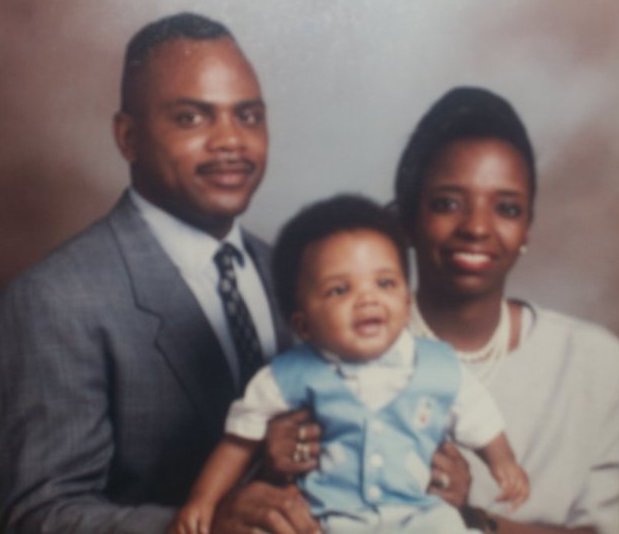My life was uprooted at 21. My parents separated.
*record scratch*
If your parents have separated, divorced, or weren’t around when you were a kid, you may have scoffed at those first two sentences.
Why was his life so uprooted at his big age of 21? Because I never thought it would be my reality.
My parents had been together for more than 30 years—unfortunately, a rarity amongst my family and my community for that matter. And I was proud of that. But my rose-colored glasses were shattered in the waning years of their marriage. My mom’s empty promises claiming this was the time she was calling it quits, only for her and my dad to make up, be on good terms for a few days, and repeat the same cycle ad nauseum. My brother and I grew numb to it.
But one late summer evening in 2017, my mom called me and told me she was done. I believed her this time. There was exhaustion and assurance in her voice. I was glad she was taking a brave stand and no longer holding my brother and I emotionally hostage. But at the same time, my heart sank because my life was about to be flipped upside down. A few months later, my parents separated and the following spring, they were officially divorced. Our family was never going to be the same again.
Even though I had been out of the house since my freshman year of college, distance didn’t ease the blow. As I was navigating my emotions and sharing them with my family and friends, I began invalidating myself. I rushed my grieving because I was experiencing my parents’ divorce as a man rather than as a child. I had to get over it and through it because everyone else had.
It also didn’t help I grew up privileged.
Many people I knew didn’t live in a three-story home, and have a king-sized bed, a TV in their room, or their own car.
So what did I have to complain about?
At least my parents were together for most of my life.
At least I didn’t have to see my mom struggle to make ends meet.
At least I had a family that supported me.
So what did I have to complain about?
Whether it was intentional or not, when people shared they endured divorce from a young age, they felt like one-up rebuttals to my pain. Yes, you’re in pain, but my pain matters and hurts more than yours.
So why do we do this to each other? It’s partly a byproduct of the cutthroat nature of capitalism, but primarily, in the context of Black folks—racism. Whether it’s athletes on draft night—the most important day of their lives—having their tough upbringings brought up on national television or Black women saving the world every day, despite being the most disrespected and undervalued. Trauma “validates” our lives and bodies in the eyes of non-Black folks—and, even at times, Black folks. Without it, mainstream society doesn’t care.
At every Thanksgiving and Christmas dinner, my dad and his siblings would inevitably share about their childhood adventures (and misadventures). They would laugh until their bellies ached and eyes reddened and welled with tears. They managed to laugh about rather unsettling stories such as getting whooped by their mother with an extension cord for misbehaving. The only reason they were able to laugh now is because the weight of their trauma had subsided with time. As his other siblings shared, my dad looked over at my brother and I, smirked, shook his head, and whispered “y’all got it made.” We got it made because we hadn’t been whooped… with an extension cord? I couldn’t envision my sweet, gray-haired grandmother beating her children in such a brutal way. Noticeably embarrassed, she sheepishly looked down at the table and waved off her children with a nervous laugh as they piled on. I couldn’t fathom being beaten in such a way and because I hadn’t been beaten in such a way, I had it made.
No one seems to care about the ordinary.
We’ve been conditioned to believe rags to riches stories and other herculean feats are the only stories worthy of celebration and recognition. It’s all about pulling yourself up by your bootstraps in a nation that has racist policies and systems in place to keep Black folks underfoot. They only care about our magic amid circumstance…by the very circumstances created by them. It absolves non-Black people of the guilt they have regarding systemic wrongs because a few roses grew out the concrete.
Yes, you’re in pain, but my pain matters and hurts more than yours.
There are even Black folks, particularly those who’ve grown up in poverty and risen to a place of privilege later in life, who believe because they did it, all Black folks who grew up or are currently living in poverty can make it through hard work. This invalidates the experiences all Black folks in poverty face because despite how hard they try to elevate beyond their present situations, the system—and even people that look like them—will block and even kill them in their attempts to create a better life for themselves and their loved ones. Hard work isn’t always the answer.
Addressing the crabs in a barrel debate, as this Tweet thread illustrates, the elephant in the room that’s grossly ignored is the fact the barrel isn’t a “crab’s” natural habitat. The barrel is inhumane project housing, fewer grocery stores and more corner stores, and gentrification and its many socioeconomic complications. And what comes from that? Misdirected frustration, anger, and violence toward one another because of everything else actively working to wear down and eventually kill us.
The recent renaissance of Black creativity within the last five to ten years, however, particularly amongst Black women, has provided hope. The Issa Raes, Shonda Rhimeses, and Ava Duvernays of the world have knocked the door off the hinges and provided opportunities for Black women and men alike to walk through behind them and tell stories that tell the fullness of the Black experience.
But once more, conditioning rears its ugly head because the hardships Black folks face day in and day out and our monolithic portrayals on the big and silver screen lead us to attacking and invalidating our own heroes and heroines. On one hand, we’re proud of the strides people that look like us are making, but because they may not have had to get it out the mud and didn’t have it hard enough, who are they to speak on our behalf?
Our conditioning makes us fearful of the very things we want to see reflected and represented in the mainstream. We’ve been told “it isn’t possible” or “no one will care” for so long, we’ve started believing it too. More stories about our complexities, our family traditions, our insecurities, and our interests outside of the tropes we’re spoon fed, please.
They only care about our magic amid circumstance…by the very circumstances created by them.
Be intentional about embracing all Black stories, especially the ordinary ones. Sit down with a grandparent and ask them about their favorite candy as a kid. Ask your parent or guardian about their first job at the local burger joint. Ask your friend about the last time they chose joy. Ask your significant other about their love languages. Ask your child or children about their inspirations. Those stories matter too. Listen to them and don’t listen to respond. Just listen.

Sterling

